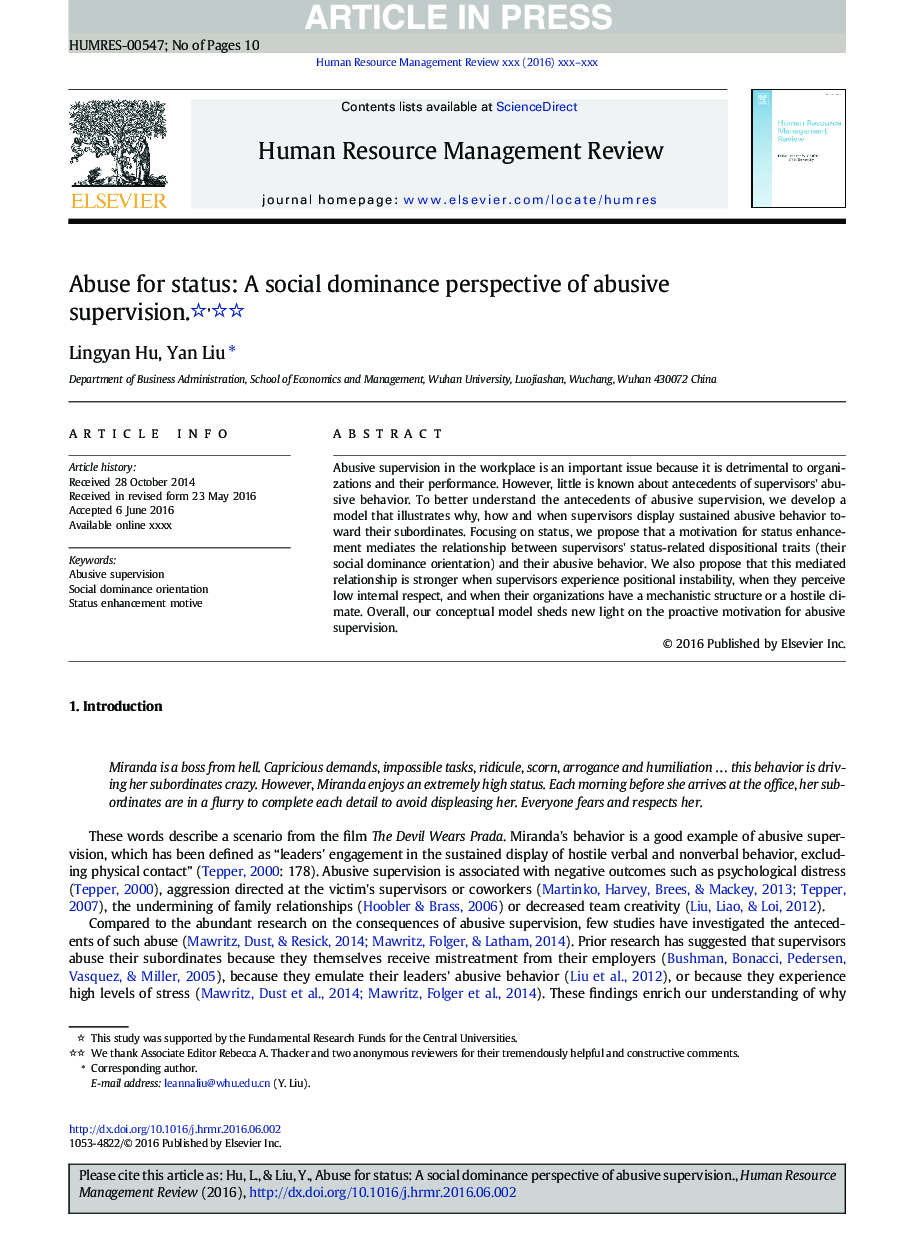| Article ID | Journal | Published Year | Pages | File Type |
|---|---|---|---|---|
| 5033667 | Human Resource Management Review | 2017 | 10 Pages |
Abstract
Abusive supervision in the workplace is an important issue because it is detrimental to organizations and their performance. However, little is known about antecedents of supervisors' abusive behavior. To better understand the antecedents of abusive supervision, we develop a model that illustrates why, how and when supervisors display sustained abusive behavior toward their subordinates. Focusing on status, we propose that a motivation for status enhancement mediates the relationship between supervisors' status-related dispositional traits (their social dominance orientation) and their abusive behavior. We also propose that this mediated relationship is stronger when supervisors experience positional instability, when they perceive low internal respect, and when their organizations have a mechanistic structure or a hostile climate. Overall, our conceptual model sheds new light on the proactive motivation for abusive supervision.
Related Topics
Social Sciences and Humanities
Business, Management and Accounting
Marketing
Authors
Lingyan Hu, Yan Liu,
